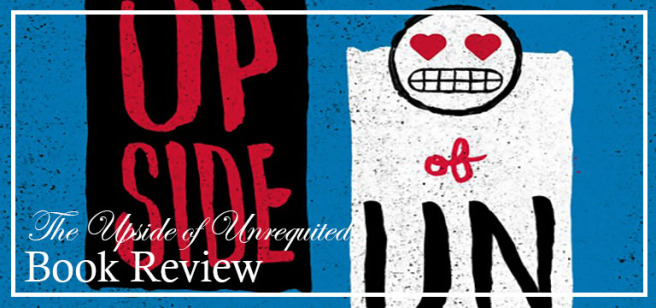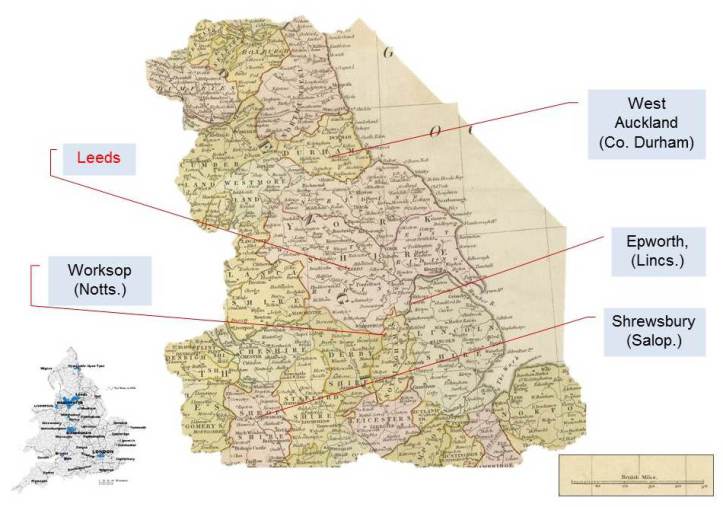Villalobos, Juan Pablo (2010), Down The Rabbit Hole, And Other Stories
[Translated from Spanish by Rosalind Harvey]
ISBN 978-1-908276-00-1
 I was emailed an article two days ago about someone or other who was decapitated by the MS-13 gang in Mississippi and in my head I went, “…and he wasn’t even a king.” This is not a story about my opinions regarding monarchy. What it is instead is a testament to how deeply a vivid – if short- book can burrow into my subconscious sometimes. So after figuring out where my brain came up with that idea, I reread the culprit, Juan Pablo Villalobos’ debut novel Down the Rabbit Hole, translated from the Spanish by Rosalind Harvey and the very first book published by the excellent people at And Other Stories. I’ll be frank: both on my reread and on my first read of the book, I didn’t like it at first. It took me a while to get into and to understand that the voice of the narrator and its mannerisms are not just preciousness. Indeed it is surprising to me how much my opinion of the book changed as I made my way through it despite how small, in terms of pages, it is. This is a very short book and while I don’t want to spoil it, I will say that, like Yuri Herrera’s magnificent oeuvre (see my review here), it’s another writer from Mexico (though living in Spain) who wrote a complex work of fiction that engages the so-called narcoliteratura, but really tells a story about something else. In this case: innocence and identity. Judging from this book, Villalobos is not nearly the writer Herrera is, but that’s stiff competition anyway. Down the Rabbit Hole is an engrossing read, with a lot of good ideas, a very firm sense of form, and a bit of debut novelist exuberance. There are a few books like this, but the context and some specific ideas here make this a very intriguing read. It’s very re-readable, and as my initial anecdote shows, the narrative voice is distinctive enough to stick around in your brain days after you finished the book. I tend to end these first paragraphs with a quick yay or nay about whether or not to read this book, but I’m not sure with this one. I, personally, enjoyed it a lot, and I suspect you will too, whoever you are, but there’s also a chance that some of its mannerisms may grate too much for you to enjoy it completely.
I was emailed an article two days ago about someone or other who was decapitated by the MS-13 gang in Mississippi and in my head I went, “…and he wasn’t even a king.” This is not a story about my opinions regarding monarchy. What it is instead is a testament to how deeply a vivid – if short- book can burrow into my subconscious sometimes. So after figuring out where my brain came up with that idea, I reread the culprit, Juan Pablo Villalobos’ debut novel Down the Rabbit Hole, translated from the Spanish by Rosalind Harvey and the very first book published by the excellent people at And Other Stories. I’ll be frank: both on my reread and on my first read of the book, I didn’t like it at first. It took me a while to get into and to understand that the voice of the narrator and its mannerisms are not just preciousness. Indeed it is surprising to me how much my opinion of the book changed as I made my way through it despite how small, in terms of pages, it is. This is a very short book and while I don’t want to spoil it, I will say that, like Yuri Herrera’s magnificent oeuvre (see my review here), it’s another writer from Mexico (though living in Spain) who wrote a complex work of fiction that engages the so-called narcoliteratura, but really tells a story about something else. In this case: innocence and identity. Judging from this book, Villalobos is not nearly the writer Herrera is, but that’s stiff competition anyway. Down the Rabbit Hole is an engrossing read, with a lot of good ideas, a very firm sense of form, and a bit of debut novelist exuberance. There are a few books like this, but the context and some specific ideas here make this a very intriguing read. It’s very re-readable, and as my initial anecdote shows, the narrative voice is distinctive enough to stick around in your brain days after you finished the book. I tend to end these first paragraphs with a quick yay or nay about whether or not to read this book, but I’m not sure with this one. I, personally, enjoyed it a lot, and I suspect you will too, whoever you are, but there’s also a chance that some of its mannerisms may grate too much for you to enjoy it completely.
The main “mannerism” is the narrator himself. Tochtli is a boy who lives in a major drug kingpin’s palace, who lives secluded, knowing only sixteen people and craves owning a Liberian Pigmy Hippopotamus. That “rare and secretive animal” serves as a mirror of sorts for the young boy who shares a disdain for pure book knowledge with his drug dealer father, but who is reduced to experience life from a distance. Villalobos’s structuring of the book is extraordinary: we learn about how distanced from life the boy is on multiple levels, including elements of syntax and paragraph construction. Some of this is connected to a sense of physicality. Villalobos introduces multiple small but potent doses of physicality into the book, from physical pain to fat bottomed girls who vanish into back rooms with his father doing things Tochtli has no words or concepts for. The physicality builds until it is released in a brutal scene towards the end of the novel – yet even there, Villalobos handles his protagonist carefully, moving him along in a certain distance from that ripe, dark, suppurated physicality. In the end, even that physicality is found to be contained, and moved back into the closed, self-referential world in the palace. But as much as I admire the control Villalobos has over all the elements of his book, the voice of the narrator is terribly grating. We meet him on page one as a practically self declared genius with great memory who reads dictionaries and uses big words. The big words at the beginning will turn out to have a greater predictive value for the plot of the novel rather than its style as Villalobos gives his protagonist not per se a childish voice, but the kind of simple, funny, deadpan voice that adult writers often think children have. And that’s a thing you really, really notice in the first parts of the book, how artificial that voice is, how it lacks depth, musicality, even real humanity. It opens a discourse on innocence precisely because its artificial creation of an “innocent” voice creates a sinister counter-flow to the novel, the opposite, if anything, of innocence. That’s what annoyed me the first time I read the book, and that’s what bothered me on my reread, as well. It’s good, then, that as one continues reading the book, this sense of annoyance at a contrived style disappears completely.
As it turns out and as I already suggested, the contrived nature is the very point, I think, of this kind of writing. Villalobos creates a forest of symbols, an “empire of signs,” to slightly misuse Barthes (though, if you read the book, you know why I associate the phrase here). I know nothing about him personally, but much of it reads like someone used the furniture and grammar of narcoliteratura to furnish the colder abstract rooms of poststructuralist theories about reality and language. I mean, that is how the book works, in my opinion. There are so many places you could start – for example the way this child tells its stories in a repetitive way. Now, the language (in translation) may not be musical, but the way phrases and descriptions appear and reappear does suggest a certain musicality. On the one hand, it does put us in mind of certain children and the circular (and sometimes, frankly, annoying) way they tell stories. On the other hand, we are offered a metatextual hint about how to read the texts repetitions pretty much exactly halfway through the book when some of its characters tell each other jokes. Mind you, we don’t hear the jokes, just Tochtli’s summary of the jokes which is a mini-thesis on difference and repetition (I don’t want to mention you-know-who in every review, but you know). It also serves as a key of how to read some of the book’s language, especially since it comes in a part of the story where everybody has changed their names, and the kid’s use of their names implies a connection of names and selfhood, and language. Language in the book is whispered, yelled, withheld. Understood, misunderstood, used as code, as self-revelation and as lie. There’s a thing in the opening pages of the The Night Circus where the child prodigy does not understand the magician adults around her because they spoke in a way that was intentionally (magically) not understandable to the child. So in this particular mediocre novel it’s particularly lazy, but Villalobos shows us how much movement and magic, really, a gifted writer can wring from language without fairy tales and witchcraft. The list of things he does is long and I could continue for a while, but let me just say that ultimately, Down the Rabbit Hole is about how constructed our narratives of villainy and politics are, of masculinity and femininity. It’s not a new claim, this, but then the novel isn’t a nonfiction essay: it merely happens to illustrate the situation exceptionally well.
And this is where, I think, comparisons to Herrera’s own take on the Mexican literature of drug kingpins and their life come up and distinguish Villalobos’s novel from what it is and what it could be in the hands of an even better (or just maybe more experienced) writer. Like Herrera, Villalobos covers his novel in a web of Mexican culture and religion, starting with the fact that everybody from the main “cast” has a Nahuatl name. Like Herrera, Villalobos toys with the musicality of pulp, and with the complicated relationship Mexican culture and literature has with European history. As with Herrera, the condensed, allusive and precise workings of the novel made me worry about overreading it (is the combination of interest in French revolution and reclusive protagonist a humorous allusion to Thoreau? Probably not.). But unlike Herrera, I get the feeling from Villalobos that he is primarily interested in his metafictional web (is this a Mexican thing?), and not as much in human aspects of his fiction. It may be that I am reading this in an age of Trump and Brexit, and so lack a certain patience for a certain kind of writing, but Villalobos comes awfully close to being just too precious and cold here and there. Herrera’s books are masterpieces not just for structure, writing and intellectual weight, but also for the way he manages to incorporate the lived experience of many Mexicans into his books. The pain, blood and struggle of ordinary people under the weight of the system and their various loyalties within that system come out with a kind of shattering purity in Herrera’s books. Villalobos, instead, opts to move to another metafictional pun at the end of his book. Herrera’s work strikes me as absolutely necessary and vital, just as it is masterful. He’s a truly great writer. Villalobos seems minor by comparison. He is very very good at what he does, sometimes stunningly so, but what he does seems so small, and I am not talking about page length here. I recommend you read Villalobos, but you absolutely have to read all three novels by Yuri Herrera that have been published by & Other Stories, which is quickly becoming a favorite publisher of mine.
*
As always, if you feel like supporting this blog, there is a “Donate” button on the left and this link RIGHT HERE.





